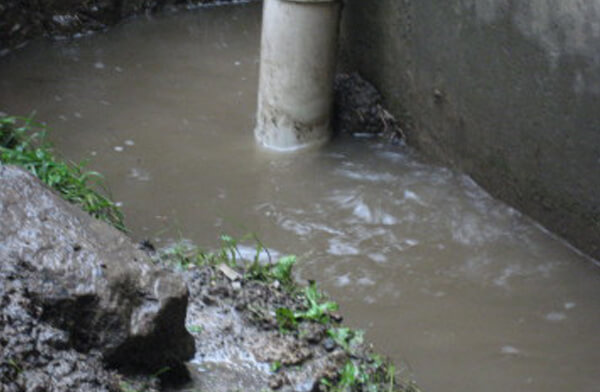Overview To Water Leakage Discovery At Home
Overview To Water Leakage Discovery At Home
Blog Article
The publisher is making a number of good annotation on Locating water leaks as a whole in this content beneath.

The moment you discover a leakage, calling your plumber for fixings is the best solution. Nevertheless, some little water leaks may not show up. Below are some hacks that aid if you can not spot it with your naked eyes.
Early discovery of dripping water lines can mitigate a potential catastrophe. In addition to conserving you money, it will minimize the worry and aggravation.
Inspect Water Usage
Analyze your water costs and also track your water consumption. As the one paying it, you ought to observe if there are any kind of disparities. If you spot sudden changes, despite your consumption being the same, it implies that you have leaks in your plumbing system. Remember, your water bill ought to fall under the same range each month. An unexpected spike in your expense suggests a fast-moving leak.
A stable increase every month, also with the exact same practices, shows you have a slow leakage that's likewise slowly rising. Call a plumber to completely inspect your home, particularly if you feel a cozy area on your flooring with piping beneath.
Inspect and also Examine the Situation
Home owners ought to make it a habit to examine under the sink counters and also inside cupboards for any kind of bad odor or mold growth. These two warnings suggest a leakage so timely attention is needed. Doing routine assessments, even bi-annually, can conserve you from a major issue.
Examine the Water Meter
Every home has a water meter. Checking it is a guaranteed way that helps you find leaks. For beginners, turn off all the water resources. Ensure no one will certainly purge, make use of the faucet, shower, run the cleaning equipment or dishwasher. From there, go to the meter and watch if it will certainly alter. Given that no person is using it, there must be no activities. If it moves, that suggests a fast-moving leakage. Similarly, if you detect no changes, wait a hr or 2 and inspect back again. This indicates you might have a slow leakage that might also be below ground.
Asses Exterior Lines
Do not fail to remember to inspect your outdoor water lines too. Should water seep out of the link, you have a loosened rubber gasket. One small leak can waste tons of water and increase your water costs.
Do a Food Coloring Examination
When it comes to water intake, 30% comes from commodes. If the color in some way infiltrates your bowl throughout that time without flushing, there's a leakage between the container and dish.
Examine for stainings and deteriorating as the majority of devices and pipes have a life span. If you presume dripping water lines in your plumbing system, do not wait for it to escalate.
The moment you find a leak, calling your plumber for repair services is the ideal solution. Some tiny water leakages might not be visible. Inspecting it is a guaranteed method that assists you find leakages. One tiny leak can waste loads of water as well as increase your water bill.
If you believe leaking water lines in your plumbing system, do not wait for it to rise.
How to Know If Your Home Has a Hidden Leak
Water Meter Reveals Inexplicable Water Usage
If you’d like to test whether or not there’s a leak somewhere in your home, you can do this using your water meter. Here is how to conduct the test:
Don’t use any water in your home for at least 30 minutes; this also means not turning on faucets or water-using appliances.
Go outside, and check your water meter for activity.
If your water meter shows that there was activity, even though no one was using any water, this proves that there is a leak in your home.Visible Mold or Mildew Growth
Leaks behind walls create moist, dark environments that allow mold and mildew to grow and thrive. Eventually, you might see mold growth forming on the wall closest to a hidden leak.
If mold is growing in an area that receives a high amount of moisture, such as a bathroom, it may simply be an indication that better ventilation is needed. However, if you see mold growth on a wall or the ceiling in an area where you would not expect, you probably have a hidden leak.
Musty, Mildew Odor
Sometimes you might not be able to see the mold or mildew that is growing as a result of a leak. However, the smell can give the problem away just as easily. If you catch a whiff of something musty, there’s a good chance that old water is collecting somewhere in your home that you can’t see.
Stained/Warped Walls, Ceilings, or Floors
When your home soaks up water, a variety of red flags can become visible, including ceiling stains, bubbling drywall, warped walls, and sagging floors. While these issues can be caused by excess humidity, they can also be signs that a pipe or plumbing connection has started leaking behind your walls.
Inexplicably High Water Bill
After a while, you get a general sense for what your water bill should be. If you own a pool or sprinkler system, your bill will tend to be higher during summer. However, if you receive a water bill that seems especially high, and you can’t figure out what caused it, then you may have a hidden leak somewhere that’s increasing your bill.
https://www.plumbingjoint.com/blog/2019/july/how-to-know-if-your-home-has-a-hidden-leak/

Do you enjoy more info about Leaking water lines? Put a remark down the page. We would be glad to find out your suggestions about this page. Hoping that you visit us again later on. If you liked our page please make sure you remember to share it. Thank you for your time invested reading it.
Report this page